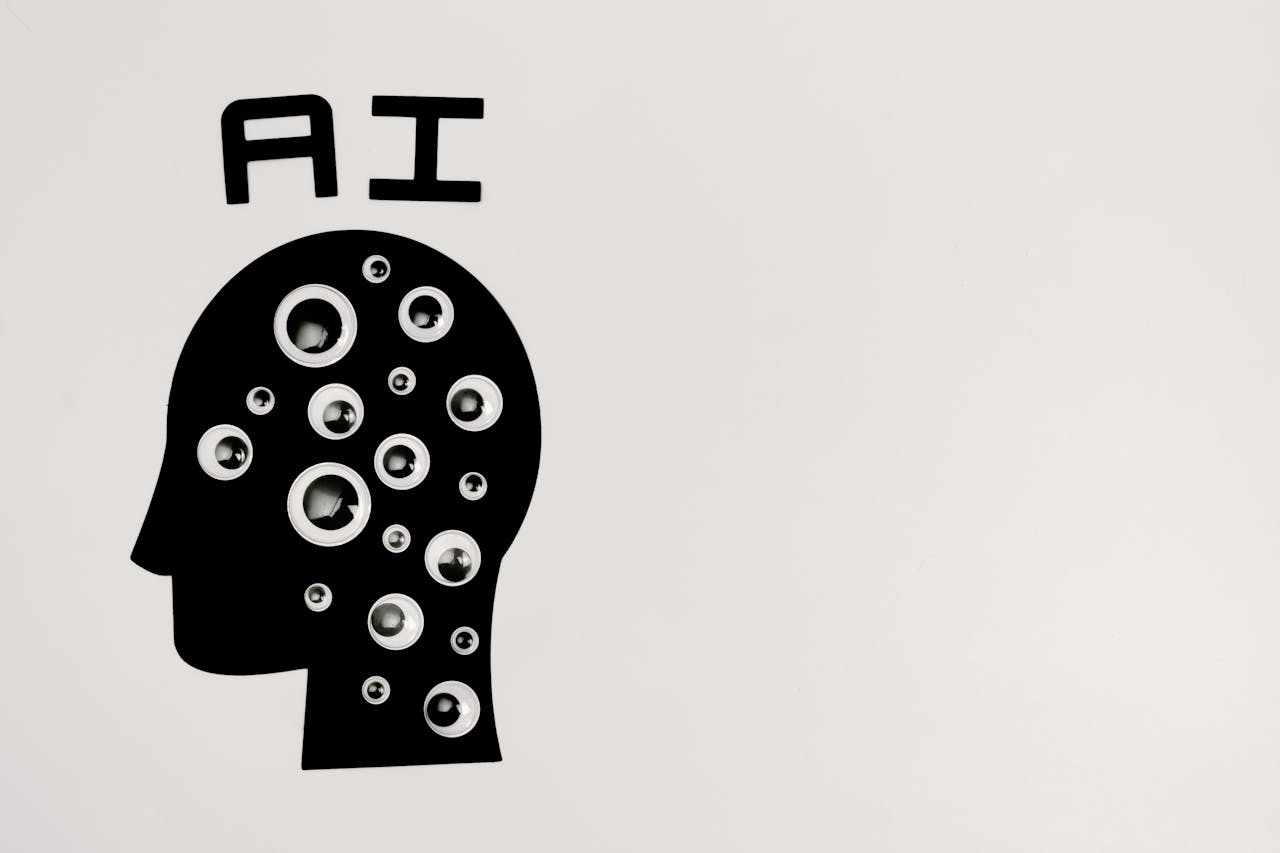If you're looking to create content that can reach your target audience and rank on the first page of search engines like Google, writing a blog post is an essential part of digital marketing.
Writing for SEO involves researching keywords, staying up-to-date with algorithm changes and creating high-quality content that aligns with user intent.

Photo by Tara Winstead:
Experiential marketing is evolving. Artificial intelligence (AI) is at the forefront, transforming how businesses create personalized customer experiences. AI uses data analysis and behavioral insights to tailor experiences like never before. For instance, tools such as AI-generated images are used to captivate and engage.
This article explores the following:
- The essence of AI in marketing
- Its transformative role in experiential marketing
- An in-depth look at AI technologies
- AI's impact on customer engagement
- Business benefits of AI integration
Let's dive in.
Understanding AI in Marketing
In marketing, AI means using smart algorithms to understand and predict what customers want. It involves different tools such as data mining, understanding human language, and forecasting future trends.
AI started in marketing with basic data analysis but has grown into advanced systems that create personalized experiences for customers.
Now, AI can predict market trends and customize marketing efforts for each person. It can transform how companies interact with customers and establish a new benchmark in the digital world.
AI’s Transformation of Experiential Marketing
AI is changing experiential marketing, making it more engaging and personal. One example of experiential marketing is prominent in VR events. These events, powered by AI, allow attendees to explore a digital world tailored to their interests.
AI analyzes consumer data to create these personalized experiences. This makes participants feel a special connection with the brand.
In experiential marketing, AI is not just about VR. It includes augmented reality (AR), personalized digital content, and interactive setups that change based on user actions. These technologies help create unique experiences for each person.
AI helps companies understand and predict what customers might want next. This allows them to design marketing strategies that are relevant and ahead of the curve. With AI, businesses can analyze customer behavior and refine their marketing approaches over time.
In essence, AI is setting new standards in experiential marketing. It enables companies to create campaigns that deeply resonate with people. These campaigns create lasting memories and build strong emotional ties with the audience.
Deep Dive into AI Technologies
Let's look at the main AI technologies to understand how AI works in marketing.
- Machine learning: An integral part. It helps systems learn from data and make better decisions over time.
- Natural language processing (NLP): It lets AI understand and use human language, making conversations with customers more natural.
For example, machine learning can look at customer behaviors to predict what they might do next. This helps marketers create more personalized experiences. NLP helps chatbots and virtual assistants talk in a way that feels human, improving customer support and interaction.
Other AI technologies include data analytics and predictive analytics. Data analytics examines large data sets to determine what consumers like and how they behave. Predictive analytics uses past data to guess future trends, helping brands determine what customers will want next.
Furthermore, AI has recommendation engines. These use customer data to suggest products or services that they might want. All these AI technologies work together, creating marketing that changes based on what each customer needs or likes. Hence, it makes experiential marketing more engaging and effective.
The Personal Touch: AI and Customer Engagement
AI brings a personal touch to customer engagement by tailoring experiences to individual preferences. This personalization makes customers feel valued and understood, strengthening their connection with the brand.
AI can analyze a customer's behavior to suggest products or services that match their interests. Here are some examples:
- In retail, AI can create a virtual fitting room where customers try on clothes digitally. Using their preferences, it can recommend styles and sizes.
- In entertainment, AI can customize recommendations for movies or music based on past viewing or listening habits.
The key is how AI uses data. It gathers information from various interactions, such as browsing history or purchase records. Then, it builds a profile for each customer. This profile helps deliver content and suggestions that are more likely to appeal to that individual.
By doing so, AI enhances the customer's experience and boosts engagement rates. Customers are more likely to interact with a brand that shows it understands their needs and preferences. This leads to higher satisfaction and loyalty, as customers appreciate personalized attention.
In summary, AI in customer engagement is about creating meaningful, personalized interactions. These interactions make customers feel special and directly contribute to a more dynamic and successful marketing strategy.
The Business Value of AI in Experiential Marketing
AI is transforming the business side of experiential marketing, leading to significant benefits. Below, we tackle how AI contributes to business growth and return on investment:
- Boosts ROI and Growth: AI-driven personalization enhances customer satisfaction and loyalty. This attracts new customers and keeps existing ones, increasing revenue.
- Enhances Targeting and Optimization: AI identifies the ideal audience and optimizes marketing campaigns. This ensures resources are used effectively, improving investment returns.
- Provides Data-Driven Insights: Businesses gain valuable insights from AI analysis. This helps them spot market trends and customer preferences, enhancing their marketing strategies.
- Secures Competitive Advantage: With AI, companies adapt quickly to market and customer behavior changes, staying ahead of competitors.
- Gains Industry Recognition: Industry leaders acknowledge AI's impact on marketing. They note better customer understanding, improved brand image, and greater market agility.
Conclusion
AI is reshaping experiential marketing. It creates personalized experiences that connect deeply with consumers. As AI advances, it will keep bringing new innovations to marketing, helping businesses stay ahead in engaging and satisfying customers.
About the Author:
The SEO-Alien is a project started in 2009 regarding all things online marketing. The site started out more of a diary of predictions, suggestions and references to things I frequently used for online marketing... before social media marketing was even an option.
I hope you find the information and tools presented here useful and something worth sharing with others.
If there is anything else about online marketing or any online advertising strategy you think would be helpful, please let me know.



